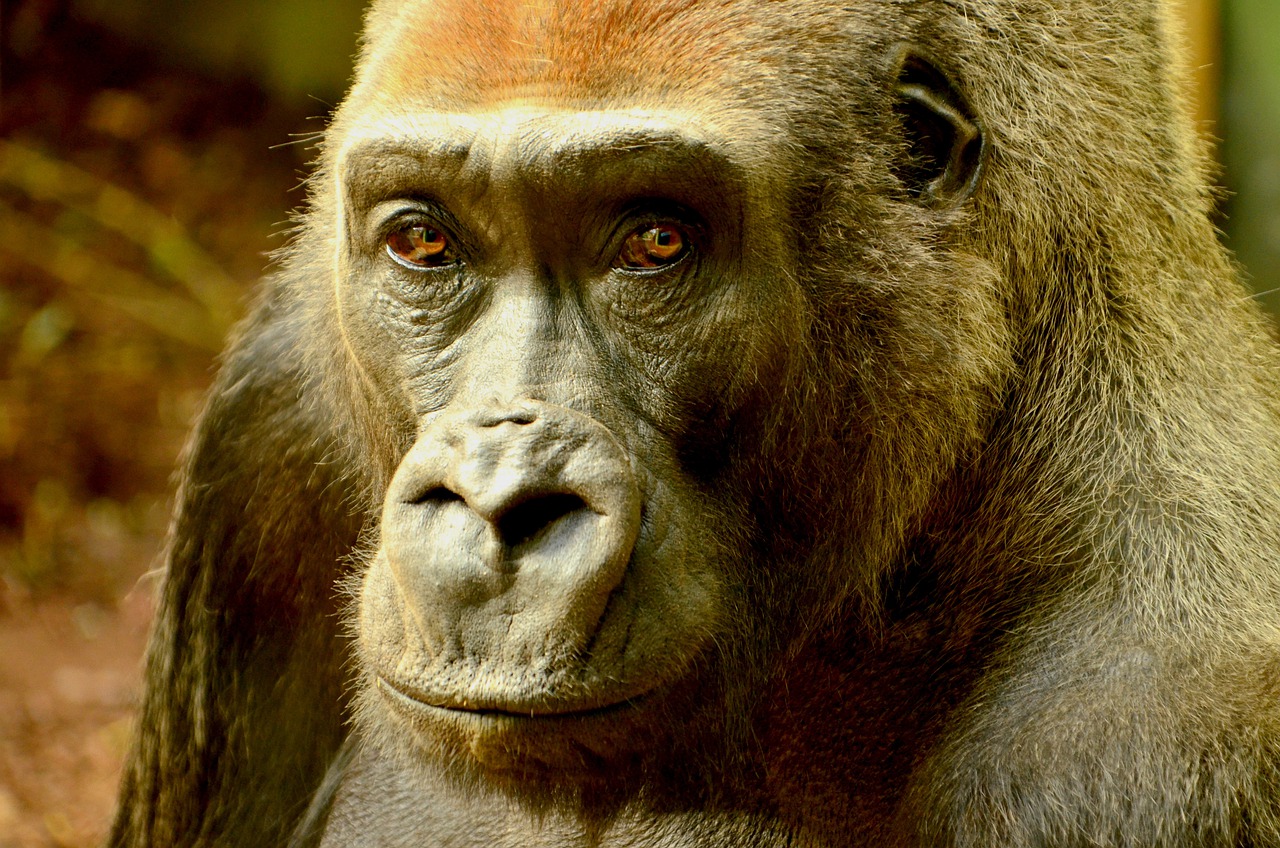Special to 1808Delaware
Six great apes with progressive heart disease – including, for the first time anywhere, two bonobos, a species that shares over 98 percent of the same DNA as humans – have been successfully implanted with insertable cardiac monitors (ICMs) at the Columbus Zoo and Aquarium to help extend their lives.
The Zoo brought together top medical and veterinary professionals to perform the procedures over three days on orangutans, bonobos, and gorillas. A cardiologist and an anesthesiologist – who usually treat people – joined Columbus Zoo veterinarians and experts from the Great Ape Heart Project, based at the Detroit Zoo, to implant a small cardiac monitor, a device about one-third the size of a AAA battery, into the apes’ chests.
The cardiac monitors, the same ones used to monitor humans, are now tracking the apes’ heart activity for signs of irregular heartbeats, called arrhythmias, and upload the data to the Great Ape Heart Project. Experts there are monitoring the data in real time and will alert Columbus Zoo veterinarians to any abnormalities so the apes can be treated with medications or other procedures. The procedures went well, and all of the apes returned quickly to their habitats.
“These procedures are a breakthrough for these six individual great apes, but the cardiac monitors will also provide critical knowledge to advance veterinary care for their species,” said Dr. Priya Bapodra-Villaverde, Columbus Zoo senior veterinarian, veterinary advisor for the Association of Zoos and Aquariums’ (AZA) Bonobo Species Survival Plan®, and executive committee member of the Great Ape Heart Project. “The coordination and commitment required was staggering, and it shows just how much every professional – whether a doctor or a veterinarian or the caregivers who see these animals every day – are devoted to the health of these animals.”
The six apes that received the cardiac monitors are experiencing the same type of health problems affecting humans: high blood pressure, and similar issues. They include male bonobos, Jimmy (age 42) and Maiko (age 38); orangutans, Dumplin (female, age 48) and Sulango (male. age 29); and silverback gorillas, Mac (age 38) and Ktembe (age 25).
“It’s remarkable how similar the hearts of these species are to those of human patients,” said cardiologist Dr. Ilana Kutinsky from the Great Ape Heart Project. “It means we can use similar treatments we apply to our human patients. Tracking the heart rhythms of these orangutans, bonobos, and gorillas will provide the Zoo’s veterinarians critical information about how to best manage any cardiac issues that arise.”
The Columbus Zoo’s animal care experts work with the great apes regularly to help them actively participate in their own veterinary care, whether they’ve been diagnosed with cardiac issues or are simply older and have a higher chance of developing them.
Now that the cardiac monitors are implanted, the animal care team will ensure that the six apes routinely move near a receiver that will upload the data via cellphone signals to the Great Ape Heart Project. Experts will monitor the information in real time and send a clinical alert to the Columbus Zoo team if they see anomalies. The Zoo’s veterinarians can then adjust medications or provide other treatment as needed.
Dr. Marietta Danforth, Great Ape Health Project director, said she is grateful for the team of medical and veterinary experts who collaborated to complete a half dozen implantations in just three days.
“Coming together and extending the cardiac care network is exactly what’s needed to help these great apes—whose cardiac health issues can often go undetected in the earlier stages just as in humans—live longer, healthier lives,” Danforth said.
All three species receiving the implants are in serious danger in their native ranges. Orangutans, native only to Indonesia and Malaysia, and gorillas are listed as critically endangered on the International Union of Conservation of Nature (IUCN) Red List of Threatened Species™, while bonobos are classified as endangered.
Bonobos earned the heartfelt affection of the Columbus community – and the world – when the story of the Unga, a Columbus Zoo bonobo whose initial trip to the U.S. was diverted for five days during the 9/11 terrorist attacks, was made famous in the Broadway musical, “Come From Away.” In 2021, Unga died of a stroke at age 29, but her legacy continues to inspire guests and medical experts to learn more about this endangered species—the rarest of the great apes.
The Columbus Zoo is grateful to the incredible team that was assembled, including Medtronic, which donated the cardiac monitors:
Great Ape Heart Project (GAHP)
Dr. Marietta Danforth, Director
Dr. Ilana Kutinsky, D.O., F.A.C.C., (Human) Cardiologist, GAHP Cardiac Advisor
Dr. Trevor Gerlach, Veterinary Cardiologist
Roberta “Bobbie” Boyd, RN, RDMS, RDCS, Cardiac Sonographer
OhioHealth Riverside Methodist Hospital
Dr. Joseph W. Donovan, Partner in Midwest Physician Anesthesia Services and Member of Medical Staff of OhioHealth Riverside Methodist Hospital; Member of the Columbus Zoo Board of Directors
The Ohio State University College of Veterinary Medicine
Dr. Eric Hostnik, Veterinary Radiologist
Medtronic
Tim Laske, Ph.D., Vice President of Research, Medtronic CAS
Joshua Wright, Principal Sales Representative, Medtronic CRM
The Great Ape Heart Project (GAHP) was founded in 2010 to investigate and treat heart disease in all ape species in human care, with the goal of reducing cardiovascular-related deaths and improving the health and wellbeing of great apes.
Based at the Detroit Zoological Society, the project now involves more than 70 institutions, including veterinarians, cardiologists, geneticists, epidemiologists, nutritionists, animal managers, ape specialists, and research pathologists.
Fewer than 100 bonobos live in just eight zoological institutions across the U.S., in comparison to more than 260 chimpanzees and 350 gorillas. The Columbus Zoo’s veterinary staff hopes to be able to use the data collected through the small cardiac monitors to help prolong the lives of bonobos and other great apes in human care, as well as contribute valuable information to help protect these species in their native ranges.
For additional updates about animals, events, conservation initiatives, and other happenings at the Columbus Zoo and Aquarium, be sure to follow the Zoo’s social media accounts on Facebook, Instagram, Twitter, and TikTok, and visit us at ColumbusZoo.org.










